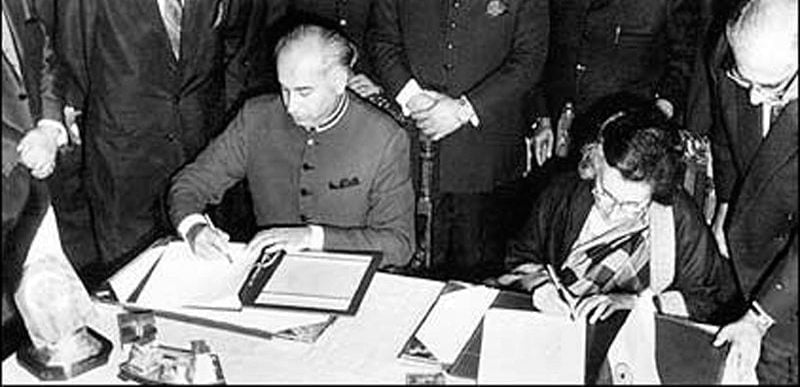On July 2, 1972, the Shimla Agreement was signed by Indian Prime Minister Indira Gandhi and Pakistani Prime Minister Zulfikar Ali Bhutto, marking a critical juncture in the subcontinent’s history. This accord was established post the 1971 Bangladesh Liberation War, during which Pakistan faced a significant defeat. The agreement emphasized a bilateral approach to resolving disputes, mandating both nations to manage conflicts without external intervention. This framework served to freeze the ongoing Kashmir dispute within a bilateral context, significantly benefiting India by keeping international powers at bay.
In a recent incident that has escalated tensions, a terrorist attack in Pahalgam on April 22, 2025, resulted in the tragic deaths of 26 civilians, including 25 Indians and 1 Nepalese. India attributed the assault to terrorists based in Pakistan, prompting a strong diplomatic response from New Delhi. India downgraded diplomatic relations and took measures to freeze the Indus Water Treaty.
In a retaliatory move, Pakistan declared the suspension of the Shimla Agreement, aiming to counter India’s perceived aggressiveness. However, this action potentially grants India a strategic advantage to reshape its approach towards Pakistan.
Strategically, India stands to benefit in several ways if the Shimla Agreement is dissolved:
-
Diplomatic Advantage: India can initiate a global campaign highlighting Pakistan’s unreliability in honoring international agreements. Leveraging this narrative, India may press for tighter sanctions through international bodies like the FATF, UNSC, and IMF, effectively weakening Pakistan’s standing, particularly among skeptical nations including the US, EU, and Gulf states.
-
Kashmir Strategy: With Pakistan’s abandonment of the Shimla Agreement, India might argue that it is now free to revisit its claims over Pakistan-Occupied Kashmir (PoK) and Gilgit-Baltistan. This shift could enable India to pursue legal maneuvers that solidify the abrogation of Article 370 as a globally accepted reality, diminishing the fear of accusations regarding bilateral violations.
-
Military Options Open Up: The dissolution of the Shimla Agreement removes the framework discouraging armed conflict. Consequently, India may consider surgical strikes and other military responses to terror attacks with reduced diplomatic repercussions, regaining leverage to respond to threats from Pakistan.
- Reevaluation of Diplomatic Engagements: The Shimla Agreement has traditionally set the groundwork for diplomatic relations. With its suspension, India could reassess the necessity of embassies, visa regimes, and cross-border trade. The country may also reconsider additional treaties established post-1972, evaluating their relevance to national interests.
In light of the potential for heightened tensions, India could implement a strategic action plan:
- Global Diplomatic Offensive: Targeting international forums such as the UN, G7, and G20 to isolate Pakistan diplomatically.
- Legal Reinforcement: Passing a parliamentary resolution reaffirming claims over all of Jammu and Kashmir, including PoK and Gilgit-Baltistan.
- Military Posturing: Enhancing military readiness along the Line of Control (LoC) to deter Pakistani aggression.
- Exposing Pakistan’s Internal Issues: Highlighting internal crises in regions like Balochistan and Sindh to generate pressure.
- Economic Sanctions: Seeking Western sanctions against Pakistan to exert economic pressure.
- Intelligence Operations: Expanding covert cyber operations to undermine Pakistan’s military establishment.
- Tactical Military Preparedness: Preparing for potential small-scale operations in PoK if conditions necessitate assertive action.
However, amidst these strategic considerations, India must exercise caution. The involvement of China, given its increasing influence in Pakistan, especially through initiatives like the China-Pakistan Economic Corridor, presents a variable that could exacerbate regional instability. There may also be a brief spike in border tensions, with certain Western nations advocating for restraint to avert a broader conflict. Thus, India’s approach should balance assertiveness with strategic patience, ensuring it navigates the complexities of this fraught geopolitical landscape effectively.







